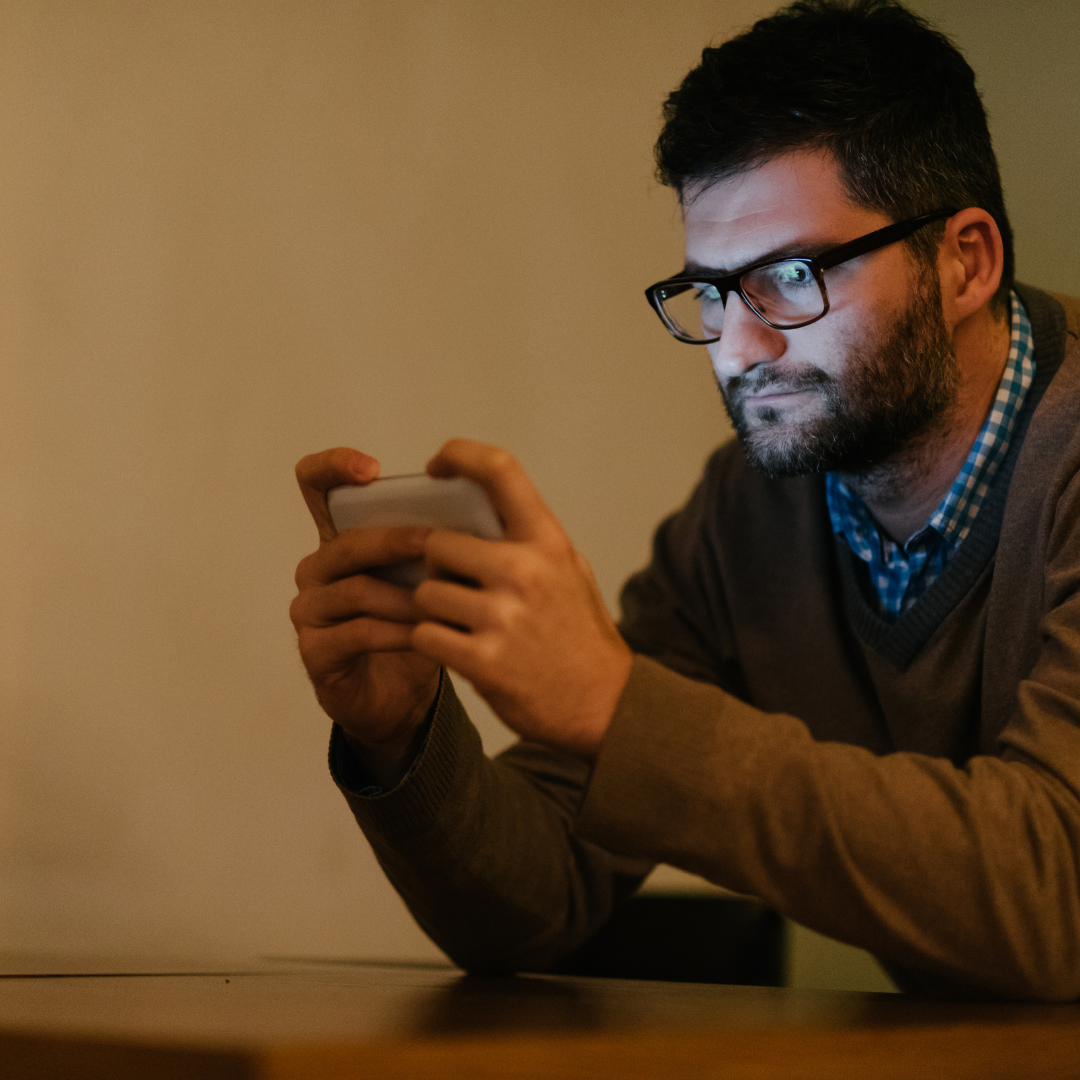What Is Blue Light and How Do I Filter It?
Light is a form of radiation, and because our bodies evolved to perceive sunlight, we mostly understand how light from the sun affects us. But there is another type of light that we don’t pay much attention to – blue light.
What is Blue Light?
Blue light is a term that refers to visible light that is in the blue spectrum. It is not a new term you’ve probably heard in this context but mainly in connection with color temperature and lightbulbs. But what exactly is blue light? How is it different from other colors of light?
Blue light is light that has a wavelength of roughly 400 to 500 nanometers. It is a part of the visible light spectrum, and just like other colors of light-red, yellow, green, and violet-it has different wavelengths. It is indeed a form of ultraviolet light. However, it is on the lower end of the spectrum, so you don’t have to worry about sunburns or skin cancer.
It is also a type of light that our bodies react to, not just our eyes; in fact, we respond to blue light in the same way we respond to green and yellow light. It’s actually quite interesting that our eyes are able to see this particular color of light. After all, human beings are not the only creatures that enjoy the sunlight! Birds, insects, and even small fish can tell when the sun is up.
The Blue Light Effect
Blue light has become a buzzword lately, but do you know what it is and what it does to your body? Recently, blue light has been in the news because of the harmful effects it can have on your eyes. In addition to causing things like macular degeneration, blue light is linked to cancer. But blue light isn’t just dangerous to your eyes. It also affects you in other ways that you may not realize.
For a long time, the medical community warned against the use of electronic devices, especially in the hours before returning to bed, as they have a way of altering the natural biological rhythms in our bodies. It is very important to have a good night’s sleep, and while it can be tempting to fire up your tablet, phone or laptop on a dreary evening, you might want to think twice.
While you may love a little light entertainment before bed, blue light exposure can have a major effect on your body’s circadian rhythm, which is the natural 24-hour cycle that regulates your sleep cycle and so much more.
Moreover, the blue light emitted by the LED bulbs can also cause harm to your eyes and body if you spend a lot of hours in artificial lighting. It can disrupt your sleep and cause issues like insomnia. However, new innovations like sleep bulbs and lamps (learn more by exploring companies similar to BLUblox) can be a benefit in such situations. These lights can block the blue light emissions and aid you in sleep.
The Filters
Blue light is emitted by the sun and from other sources, but the biggest source is most likely the smartphone or tablet in your hand. Blue light is part of the visible light spectrum which means it can be seen by the human eye. It is associated with digital eye strain, migraines, and sleep problems. While the effects of blue light are controversial, many eye experts believe it is causing long-term damage to the eyes, resulting in an epidemic of nearsightedness. Luckily, there are plenty of ways to filter out blue light as you go to bed.
For years, people have claimed that exposure to blue light from computers, tablets, and smartphone screens can cause sleeplessness and eye strain, and other more serious health issues. Recently their claims have proven true, and as a result, many companies have developed blue light filters designed to be used on the screens of these devices. These blue light filters have been shown to have a positive effect on sleep, and there are even blue light glasses that can be worn in front of devices in order to filter out blue light.
There’s even a blue light filter app to help you out. The name of it is “Nofilter,” and the app is based on research from Harvard Medical School. The study basically shows that blue light filters can help to improve your sleep and can also help to lower the risk of macular degeneration.
Conclusion
It’s true that exposure to blue light will negatively affect your sleep, but if you’re looking for the best blue light blocking glasses, you’ll need to consider other factors besides UV protection. Blue light glasses that are tinted yellow or amber will also block violet light, which is just as damaging to your eyes as blue light. In addition, there is no reason not to wear blue light filter glasses following LASIK surgery from SharpeVision or any other eye treatment center, particularly if you notice an improvement after wearing them.
Remember, if you’re going to wear glasses at night, make sure you’re choosing glasses that block all the harmful light from your electronic devices.


